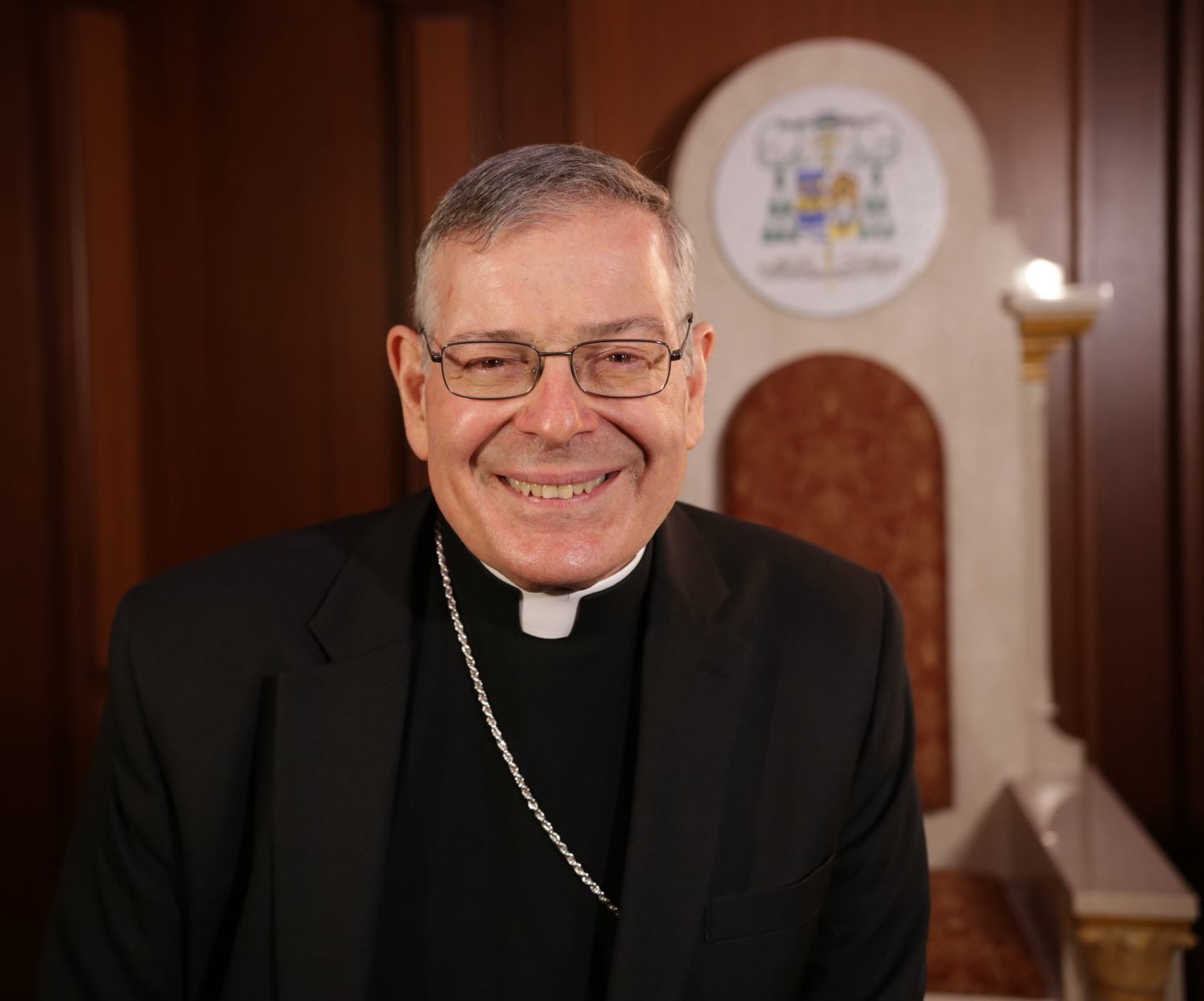
Labor Day is upon us, and the days before remind us of the occupations and work in which we are daily involved. In Florida, young people have already been back to school for a few weeks, and those entering college begin a new task and face new challenges ahead of them. Vacation time and getting away have passed, and we now concentrate more upon the occupation, whatever it may be, that is before us. Labor Day is a good time to reflect upon the importance of work and how we carry it out in our daily lives. Work is not a burden but a blessing which occupies our time and talents in a way that is beneficial to our families, ourselves and to society. Even if we are retired, we still are involved in an occupation of our time, which is important.
In his encyclical on the care for the common home which God has given to all of us, Laudato Si, Pope Francis speaks eloquently of the vocation of work and its centrality in our lives. He says, “We were created with a vocation to work. The goal should not be that technological progress increasingly replace human work, for this would be detrimental to humanity. Work is a necessity, part of the meaning of life on this earth, a path to growth, human development and personal fulfillment.” The Holy Father elaborates on how we need to take the labor to which God has called us seriously and to respect the right of every human person to labor as part of the very human condition.
As we reflect upon the vocation of labor that is common to all of us, it is well worth reflecting upon the encyclical on labor of St. Pope John Paul II, Laborem Exercens, in which he expounded on the value and dignity of work. St. Pope John Paul II set forth a “Gospel of Work,” reminding us that, since we are created in the image and likeness of God, we were called at the very beginning of creation to share with God in the work of caring for the earth. How close is the relationship between the thought of Pope Francis and St. Pope John Paul II regarding the necessity to realize our responsibility to care for the earth, which God has created for us. In carrying out this call to care for the earth, especially in labor, every human person expresses his or her dignity and the freedom which reflects the very image of the Creator Himself. Pope John Paul II put it very clearly when he stated, “Man ought to imitate God, His Creator, in working, because man above all has the unique characteristics of likeness to God.” This likeness includes a care for what God has given to us in creation, which requires our labor over it in many different ways.
How well Jesus respected the earth as the common home which His Father gave us to take care of and in which to labor. He had the greatest respect for labor because He understood its true nature as rooted in His Father. Jesus realized that we spend most of our time in labor and reflected this in so many of His parables. These parables deal with labor and encompass a wide variety of occupations, including those of farmers, businessmen, realtors and fishermen. Jesus had a great compassion for those who were without labor and who had the right to it. One of His most poignant parables was that of the workers hired early and later in the day who all received the same just wage to the consternation of some (cf. Mt 20:1-6). In this particular parable, He extolled the dignity of work as fundamental to human nature since providing work was an equal right to receiving a just wage.
In the Gospels, we read of Jesus’ own labor as He went about His ministry. Jesus explained that His work was united to that of the Father as He told us, “My Father is at work until now, so I am at work” (Jn 5:17). It is clear that He understood the passage of His earthly existence is bound to labor when He explained, “We have to do the works of the one who sent me while it is still day. Night is coming when no one can work. While I am in the world, I am the light of the world” (Jn 9:4-5). Indeed, as the light of the world, Christ is the one who gives meaning to our labors and to the purpose of life, especially in His cross and Resurrection. We cannot overlook the fact that Jesus spent many of His years on earth in manual work at the carpenter’s bench in His proximity to St. Joseph, who taught Him the meaning of work.
St. Pope John Paul II tells us that “Determining the value of work is not primarily the kind of work being done but the fact that the one who is doing it is a person.” Pope Francis certainly appreciates these words. This statement is a magnificent reflection for all of us no matter what our labor may be. It helps us to appreciate what we do and how we work together for our own common good and for the good of all. A common error is that work is the result of original sin. Nothing is further from the truth. Work is an original gift from God by which the human person enacts his or her identity as created in the image and likeness of God. Like many other things in creation, work was affected by original sin and hence God’s words, “By the sweat of your face, shall you get bread to eat” (Gn 3:19). It is not work that is the result of original sin but the sometimes arduous difficulty and waste that can occur in it. Work that is not based in God, not respectful of the nature of the human person, not carried out in love, or simply carried out for the sole purpose of profit, is indeed a reflection of original sin. Work that reflects the dignity of the human person always embraces our purpose.
As we return to a more definite routine after the summer, it is important to respect the importance of our life and work. We join our hands, minds and hearts together by carrying out the labor in which we are involved as a testimony to the dignity of being human, created in God’s image and likeness, to care for His creation and to build it up as Pope Francis exhorts us. Our labor affects the entire human community, not only by the variety of work that is done but especially by the example with which it is done. Now that summer has hopefully given us a chance to rest, may all of us enjoy more the labor in which we are involved as God so desires.
A fitting Labor Day prayer from the United States Bishops is: Lord God, Master of the Vineyard, how wonderful that you have invited us who labor by the sweat of brow to be workers in the vineyard and to assist your work to shape the world around us. As we seek to respond to this call, make us attentive to those who seek work but cannot find it. Help us to listen to the struggles of those who work hard to provide for their families but still have struggles making ends meet. Open our eyes to the struggles of those exploited and help us speak for just wages and safe conditions, the freedom to organize and time for renewal. For work was made for humankind and not humankind for work. Let it not be a vehicle for exploitation but a radiant expression of our human dignity. Give all who labor listening hearts that we may pause from our work to receive your gift of rest. Fill us with your Holy Spirit that you might work through us to let your justice reign. Amen.
Most Reverend Gerald M. Barbarito
September 1, 2023

